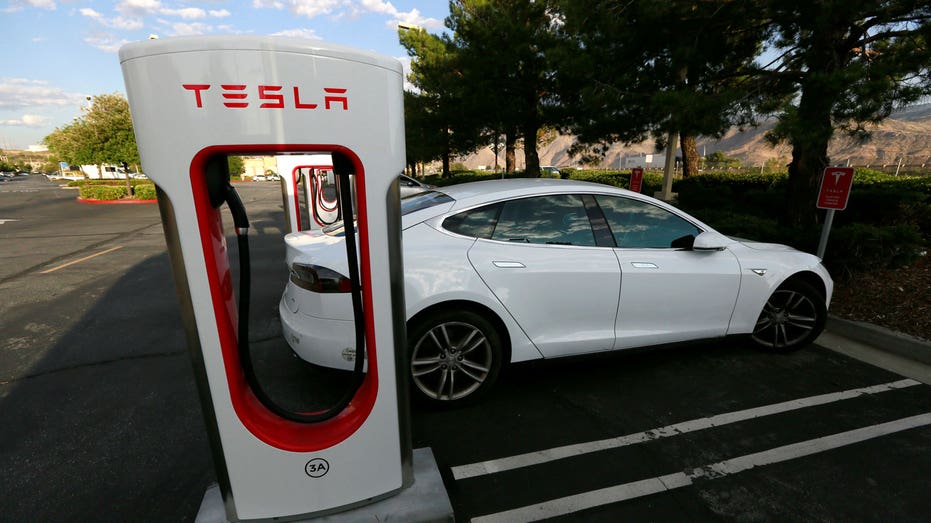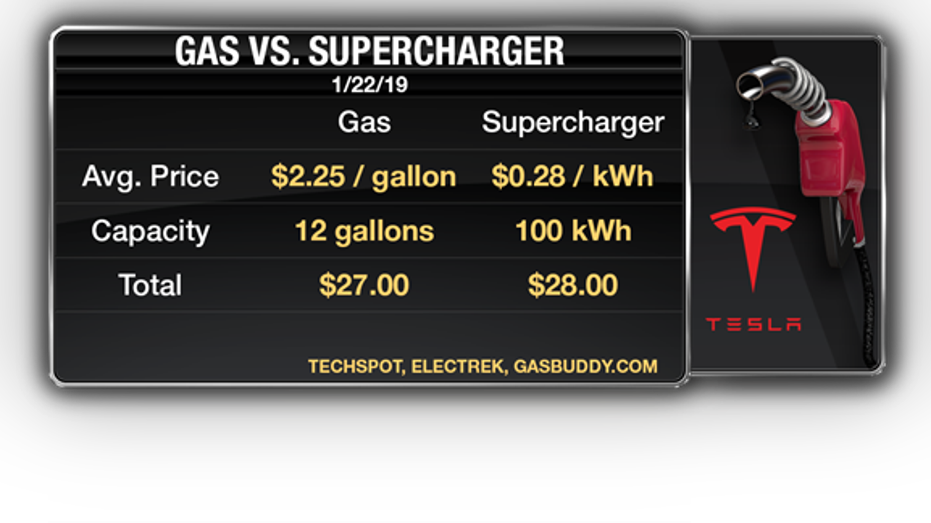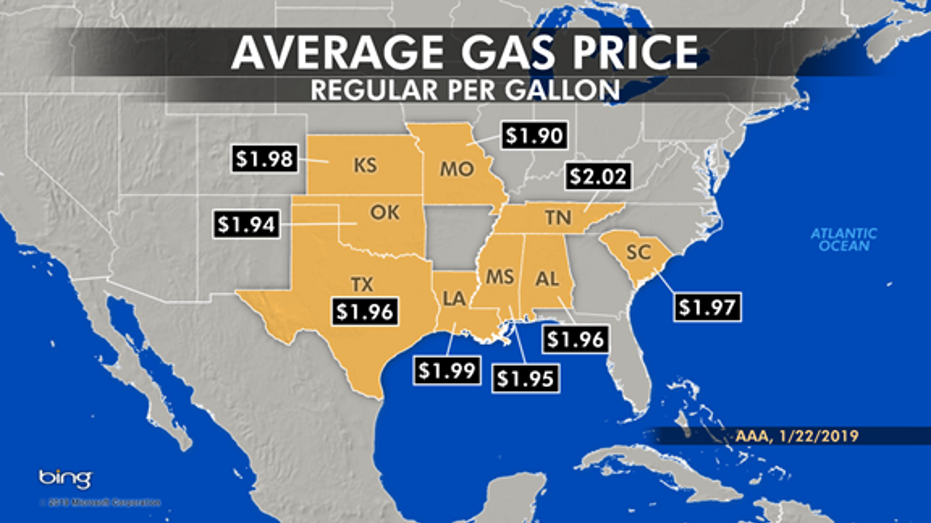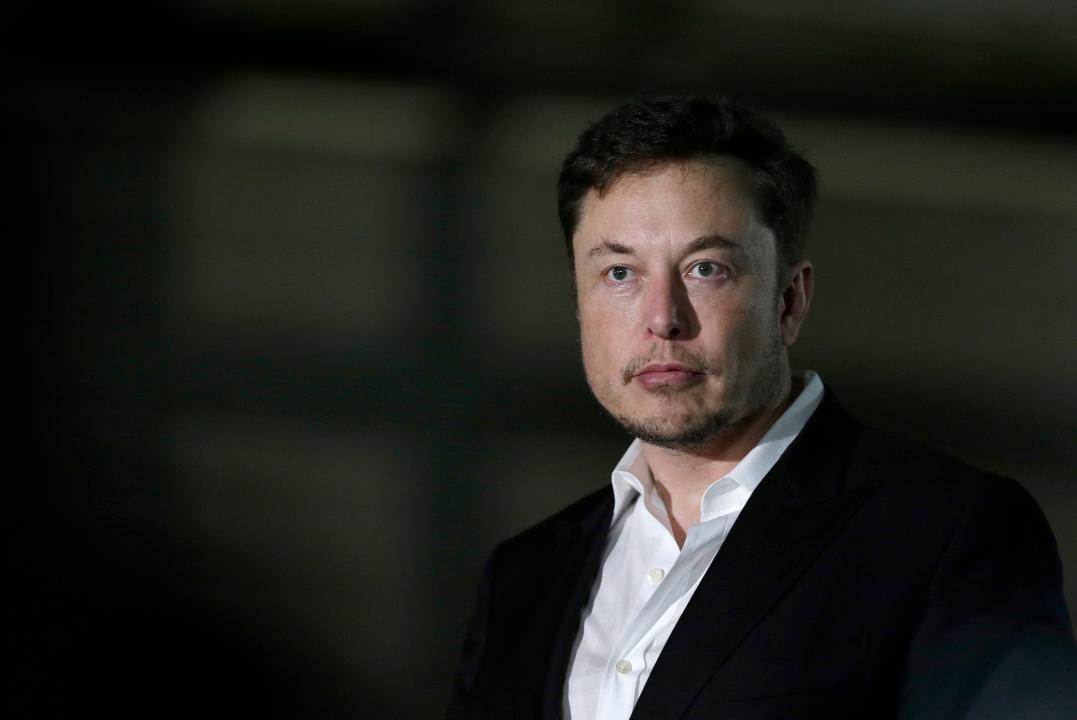Do Tesla Supercharging rates cost more than gas?
As Tesla owner Chrystal Hovis sits at one of the electric carmaker’s “Supercharging stations” in the western suburbs of Chicago, she declares herself a convert.
“I love my Tesla,” she told FOX Business. “I’ll never go back to gas.”
| Ticker | Security | Last | Change | Change % |
|---|---|---|---|---|
| TSLA | TESLA INC. | 411.11 | +13.90 | +3.50% |
Hovis, typing at a notebook computer resting on her lap during the 30-minute charging process, says she and her husband – both devoted Tesla owners – have saved more than $20,000 so far in charging vehicles since 2016, compared to what it would have cost to fill gas-powered cars.
But an article this week in Techspot raised questions about whether the math still favors would-be Tesla owners like Hovis. The electric-vehicle maker, headed by chief executive Elon Musk, announced a significant rise in its Supercharging station rates, just as gas prices have tumbled to near multi-year lows. Tesla has long touted the lower cost of charging as a selling point for its electric vehicles.

A Tesla Model S charges at a Tesla Supercharger station in Cabazon, California, U.S. May 18, 2016. (REUTERS/Sam Mircovich/File Photo / Reuters)
According to the article, these moves “might make charging their vehicles more expensive than refueling at a regular gas station.”
Since Oct. 10, the national average price for regular gas has fallen 23 percent to about $2.25 a gallon, according to consumer gas website Gasbuddy.com. The decline comes as Tesla also ends its referral program that provided free Supercharging to qualified buyers, something Hovis took advantage of. Going forward, all new Tesla owners will have to pay the higher rates at Supercharging stations.

Tesla’s revised Supercharger price comes to a national average of $0.28 per kWh, three cents lower than the initially planned $0.31, following an outcry by Tesla owners, energy technology website Electrek reported. Based on average prices, a fill-up and a charge are nearly equivalent in cost, running $27 and $28 respectively. (At $0.31, charging would have been $31.)
Yet, in many states the price of a gallon of gas remains far below the national average, changing the math. In Missouri, according to AAA on January 22, regular gas was selling for $1.90. In Oklahoma, it was $1.94, and in Texas, the average was $1.96, all well below $2.25.
In such cases, using average prices, it’s cheaper to fill a car with regular gas than its batteries with electricity at a Supercharger.

But industry analysts also question whether some of the recent cost comparisons are fair, claiming key factors and certain nuance are being overlooked.
For example, most Tesla owners charge at home -- where rates are cheaper -- not at the public Superchargers.
“I use the Superchargers, because with the referral program, I can charge for free,” Hovis said. “But even at home, a charge costs us about $11, a lot less than a fill-up.”
To her point, Cars.com executive editor Joe Wiesenfelder, who calls electrification a “renaissance” in the industry, added: “You can reap the benefits of lower cost per mile when you’re using it as intended – charging at home overnight.”
Analysts also told FOX Business that when comparing cost, consumers should pair Teslas with equivalent-cost luxury vehicles. Doing so can not only impact the calculations for purchase price and MPG, but also the per-gallon fuel cost at issue with Superchargers.
CLICK HERE TO GET THE FOX BUSINESS APP
“Luxury cars run on premium gasoline, which currently costs more than $2.80 a gallon on average,” Wiesenfelder said. “We have to acknowledge that Teslas – even the Model 3 – legitimately compete with luxury cars.”
The executive publisher of Autotrader and Kelly Blue Book, Karl Brauer, also said the fact that such a debate is underway at all shows the strides EV manufacturers have made in recent years. Five to seven years ago, Brauer said “you would not have been able to make a good argument (in gas versus electric).”
“But today, under certain circumstances,” he added, “EVs can make a lot of sense for a lot of people.”
Brauer, who lives in southern California, is one. He drives a Fiat 500e.
The two-door EV can handle “90 percent” of his family’s typical driving, he says. But he mentions geography, daily miles driven, and charging station availability should enter the equation for any driver considering purchase of an electric vehicle, including a Tesla.
“It’s a very personal thing,” Brauer said. “If I’m in Montana, where it’s cold, distances are far, and gas is cheap, I might not want to get an EV ... Here in California, for my family, it makes sense.”
Back in the Chicago area, where snow covers the ground and temperatures are set to dip into single digits this week, Hovis is undeterred by cold-weather warnings. (Low temperatures can decrease battery performance.) In fact, she’s committing to future EVs by having solar panels installed at her home to charge her family’s cars.
“Tesla’s doing all the installation for us,” she said. “We can’t wait.”
Of course, the solar panels are an additional up-front cost, as is installation of in-home chargers, meaning that, all spent, EVs generally remain more expensive than gas-powered vehicles.
“All the various costs need to be considered,” said Wiesenfelder. “Someday maybe EVs will be more affordable than gas, start to finish, but we’re not there just yet.”
A Tesla spokesperson told FOX Business the Supercharging network covers the country so drivers should feel comfortable taking long trips. Also, on average home electricity rates are slightly below SuperCharging stations, which has more drivers charging at home.




















